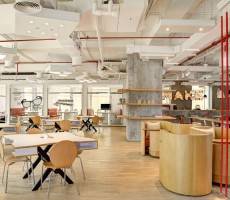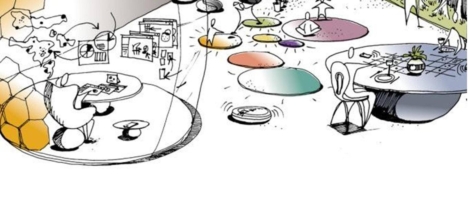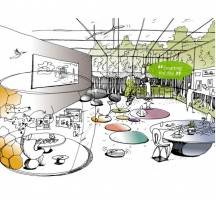August 31, 2015
BSI revises design and construction standard for facilities managers 0
 BSI, the UK based organisation responsible for developing and publishing standards for businesses, has revised BS 8536-1 Briefing for design and construction: Code of practice for facilities management (Buildings infrastructure). The standard has been included in the Level 2 BIM package which the Government expects companies to offer when tendering for Government contracts. The standard has now been brought into line with the principles of the Soft Landings Framework and Government Soft Landings (GSL) post occupancy evaluation and BIM requirement. Soft landings is designed to enable the transition from design and construction into operation. It advocates collaboration during briefing, design, construction and handover between the design and construction team and the operator, operations team or facilities manager.
BSI, the UK based organisation responsible for developing and publishing standards for businesses, has revised BS 8536-1 Briefing for design and construction: Code of practice for facilities management (Buildings infrastructure). The standard has been included in the Level 2 BIM package which the Government expects companies to offer when tendering for Government contracts. The standard has now been brought into line with the principles of the Soft Landings Framework and Government Soft Landings (GSL) post occupancy evaluation and BIM requirement. Soft landings is designed to enable the transition from design and construction into operation. It advocates collaboration during briefing, design, construction and handover between the design and construction team and the operator, operations team or facilities manager.
































August 18, 2015
That story about sexist air conditioning systems…roundly debunked 0
by Mark Eltringham • Comment, Facilities management, Wellbeing, Workplace
The main story of the silly season so far has been that one about the inherent sexism of air conditioning systems from a week or two back. Based on a study published in the esoteric journal Nature Climate Change, it appeared that standards for heating and ventilation in building systems were founded on the metabolic rate of an average man which suggested women were toiling away in unconducive, if not exactly unbearable, conditions. This was a compelling tale picked up worldwide by major media outlets including The New Yorker and The Daily Telegraph. There were only two problems with it all. Firstly, the original study was extremely flimsy, based on a tiny sample and ignorant of some basic facts. Secondly the science behind it has now been roundly rejected by ASHRAE, the main US body responsible for informing debate on such matters.
(more…)